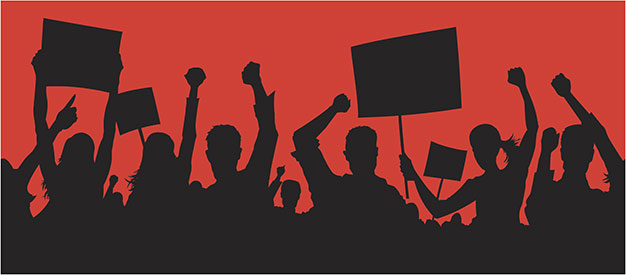Muted media
How media and education has slowly suppressed student voice.
Throughout the years, the openness to perceive students’ voices and opinions has lessened due to the lack of light it receives in the media.
February 12, 2021
Since LHS first opened, student media has risen exceedingly, to the extent where students are given opportunities to write publicly within our school newspaper or yearbook.
While we are granted every tool to produce great stories and layouts, we often lack the ability to write about subjects that possess imperative ideas regarding our education and its susceptibility to change.
Student censorship is not an unfamiliar issue when it comes to voicing controversial opinions, but it has become predominantly apparent as the years carry on and as student media continues to flourish.
Students’ opinions were often displayed throughout many older Statesman issues that included entire columns dedicated to students “speaking up,” where students pondered qualities of the school that affected them. They discuss their viewpoints concerning all types of topics: prayer in school, blue passes, mandatory drills and much more.
In an opinion piece of 1994, “Discipline needs to be fair,” student Emly Babcock stresses the importance of fair rule enforcement, mentioning that “schools have turned into an environment where the amount of time spent on enforcing the rules often surpasses the amount of time spent on actual learning.”
In many instances, the Statesman staff even inserted a column urging student opinion, reminding them that “opinions pro and con are always welcomed by the staff and are greatly appreciated,” and that the “Statesman is published for the interests and enjoyment of the student body.”
But as the years passed, opinion pieces trended away from the idea of education and student inconvenience; students began covering topics such as controversial political elections, social injustice or stereotypes.
The shift in the topic coverage doesn’t necessarily have a specific cause; however, it does point to the possibility that student censorship towards certain issues has risen with time.
Under the First Amendment, the rights of students in the public school system are not automatically coextensive with the rights of adults in other settings. They are applied based on the characteristics of the school environment and the school’s administration.
Undoubtedly, it is hard to disagree with the prohibition of students being able to write whatever they desire, however, it drastically hinders our ability to speak openly about our education and to have a voice that could make a difference for the better.
Even though we are young, many of us are on the verge of becoming adults and on our path to the real world; but it doesn’t feel like we are treated as such, nor does it seem like school properly prepares us for the real world. Adults are aware of the unpredictability and the unpleasant aspects of the world outside of education.
There are many instances that support this idea: students continue to have to rely on agendas to use the restroom across the hall, a parent to call them in and teachers to decide when and where they get to be.
If a student is late to class, they are “swept,” and sent to the lunchroom to stay the whole period, even if it’s just a few minutes. Truthfully, missing 55 minutes of a class with useful information shouldn’t be prioritized over missing a few after a rough morning.
When students have good reason to switch classes or periods, their input is often ignored, and parents are called to make sure it’s allowed.
While there are countless exceptions to these few examples, it does imply that students who are striving to grow in not only their intellectual abilities but also in their individual abilities are stunted on their path to maturity.
The education system has always been decided on behalf of the adults and authority figures in which we are taught to simply abide by each regulation. But if education is truly for us, shouldn’t it be on our behalf too? I want to have a voice in our education, not a voice that plans the prom but a voice where we as students can take our future into our own hands.









